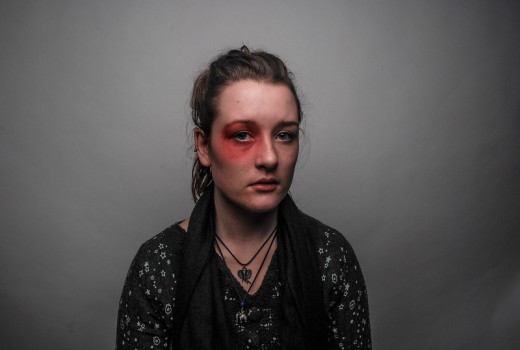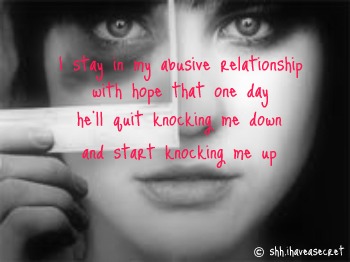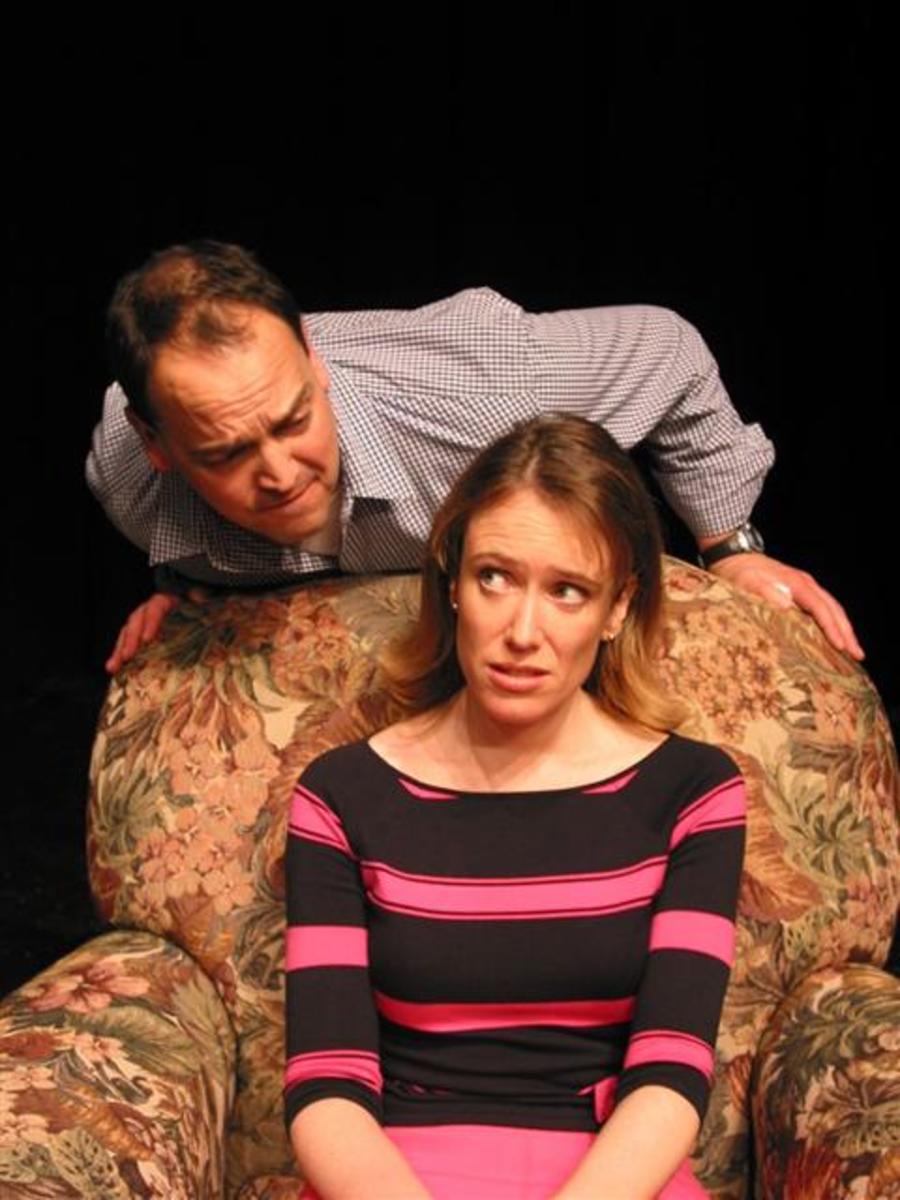Getting Rid of "Crazy Love" -A Case Study of Leslie Morgan

I admit it.
The toughest part of being in an emotionally abusive relationship. It's accepting you are in one.
This is crazy;
well?
The scars you can’t see are the hardest to heal.
It gets even worse
Everyone gets to a relationship to be happy, to laugh, to smile and to have good memories, right?
But no one gets into a relationship to get upset, cry or to feel hurt.
You are working like a dog to save your abusive relationship. You ask yourself how did it start? when is it going to end?. How do I get over it?
The problem is women think he will change, he won’t. And men make the mistake of thinking she will never leave, she will.
In this post, we will dive deep into a case study "Crazy love".by Leslie Morgan. Leslie gives the whole picture of how it is to be in an abusive affair. She narrates how it started, The crowning point and how she managed to break out.
Follow it to the end and promise to inspire someone taking a stab in an abusive marriage.
Ready?
Let's get started.

"Crazy Love" by Leslie Morgan.
In her story, "crazy love" Leslie was in love with a man who now and again abused her and threatened to end her life. She talks about mistaken beliefs that people have towards victims of domestic violence. And explains how you can break the silence.
Leslie talks about disturbing questions and gives disturbing answers. Why do you stay? Why would you stay with a man who beats you?
Laslie is not a psychiatrist, an expert on domestic violence or a social worker. But an ordinary woman with a vivid story to tell.
At 22 Laslie graduated from Havard college. She moved to New York City and got a writing and editing job at Seventeen magazine. Moved to her first apartment. Got the little green American Express Card. Life was good. But had a big secret. She had a gun loaded with hollow-point bullets pointed at her head every day by a man who was his soulmate.
The man he loved more than anything else on this earth held a gun on her. Threatening to kill her many, many, many times.that she can't remember all. This is a screw loose story of a woman in a psychological trap disguised as love "Crazy Love"
Laslie didn't look like a typical domestic violence victim. She had a B.A in English from Harvard College a Marketing MBA from Wharton Business School. She had spent most of her career working for Fortune 500 companies. The likes of Johnson &, Johnson, The Washington Post, and Burnett. She is now flying high happy married to her second husband whom they have three kids together. She has a Black lab dog and enjoys driving her Honda Odyssey minivan.
Her first message is
"Domestic violence can happen to anyone".
Regardless of race, religion, income status or education level. It's for everyone.
Her second message is
"Domestic violence happens to women only".It's a women issue.
Statistics show that 85 percent of abusers are men and it happens to families. The last place people think it can happen because you are in love?
Laslie confesses that she could be the last person on earth to stay with a man who beats her. But she turned out to be a big victim at 22. In the US alone women aged 16 to 24 are three times likely to become domestic violence victims. compared to older women. Over 500 women of this age get killed every year. By their abusive partners, husbands, boyfriends, and partners.
Leslie met Conor, his abusive husband on a cold rainy January night. They sat next to one another on the New York subway and started chatting. Conor was a graduate of Ivy League School and had a high-income job at a Wall Street Bank. He was smart and funny with big apple cheeks and white-blond hair that made him look so sweet.
They started dating Conor supported Leslie in her writing career and as a woman. Their love was real and true. It created a magical atmosphere of trust. They started confessing their secrets. Conor shared how he got abused by his stepfather at the age of 4. The abuse had been so bad that he had to drop school in the eighth grade. Even though he was smart Conor had to spend 20 years rebuilding his life. Conor worked hard, got to the Ivy League School, graduated and got the Wall Street job. He had a bright future and had met a smart lady the dream of her life.
The first stage in any domestic violence relationship is to.
"Charm and Seduce the victim"
Conor was romantic and had what any woman was looking for.
The second stage of a domestic violent relationship is to.
"Isolate the Victim"
One day Conor came home and announced that he had quitted his Wall Street job. He confessed that Leslie had made him feel happy and safe. He didn't have to prove himself by working at Wall Street. Furthermore, he had made enough savings that could get them out of New York City. Where Conor grew up. It had memories of his abusive childhood and dysfunctional family.
Out of the "Crazy Love", Leslie agreed to move out of Manhattan to a tiny town in New England. She also left her dream job and became a freelance writer. Little did she know that she was being isolated and that's where the abuse started.
The third stage for the domestic violence pattern is.
"Introduce threats and violence and see how she reacts"
As soon as they moved to New England Conor bought three guns. Imagine the place where he was to feel safe now he had guns. He said he needed the guns because of the trauma he had experienced as a small boy. He needed to feel protected. He kept one gun in the glove compartment of their car. The second under the pillow on their bed and the third one in his pocket all the time. Although Conor had never raised a hand on Leslie the guns sent a big message.
Then came the first physical attack five days before their wedding. At 7.am in the morning, Leslie had just woken up still on her nightgown. She opened her computer to finish her freelance writing assignment. Later they had a short argument with Conor over a trivial matter. Suddenly Conor rose up and put both of his hands around her neck, squeezed tight that Leslie could not breathe. He hit her head many times against the wall. Then immediately released her. It happened so fast. Leslie could not believe her eyes. Then immediately Conor started crying begging for forgiveness. Leslie forgave him as she had never seen him behave like that.
Five days later even before the 10 bruises on her neck healed. They were getting married and would live with zeal thereafter. They were planning a wedding because they loved one another so, so, so, so much. Could be Conor got stressed out by the upcoming wedding that's why he got physical.
Shock onto Leslie. The physical attack did not stop there it happened again during our honeymoon. Leslie was driving to find the secret beach where they were to spend their honeymoon. She got lost but Conor got very angry and punched her head so hard that her head hit the driver's side window. He said it was out of frustration.
Later after the honeymoon. As they were driving home Conor got frustrated by the traffic and threw a cold Big Mac on Leslie's face. From that day on, Conor went ahead to beat her once or twice in a week next to half of their marriage.
This is not a unique situation. One in three American women experiences domestic violence at some point in her life. According to the CDC report, 15 million children get abused every year. Leslie was not exceptional.
Conor held loaded guns on Leslie every day. He threatened to kill their dog. He pushed her downstairs, put the key out of the ignition as they were driving on the highway. Poured coffee grinds on her head when Leslie had dressed for an interview.
Back to the big questions
What made her stay? Why could she leave?
The answer is. Leslie didn't know that she was in an abusive marriage. She never thought of her as a battered wife. Instead, she thought she was a strong woman soaked in love with a troubled man. He thought he was the only person who could face Conor's demons.
Why could she not walk away? This is the same question I know you are asking. Many people cannot understand this. It is unthinkable dangerous to break away from an abuser.
The final step in the domestic violence pattern
"Kill her"
70 percent of domestic violence murder happens when the victim ends the relationship. Because the abuser has nothing to lose. The abuser will be stalking the victim. Denying his financial resources, manipulating the family court system and strike fear to the children and the victim.
They force the court to give them unsupervised time with their children. Good Lord! How can the man who wanted to kill their mother stay unsupervised with the kids?
Finally, Leslie had to leave. This was after a sadistic beating by this man. She realized that the man that he loved most was about to kill her. So she broke the silence. She told everyone, the police, neighbors, family, and friends. She even went ahead and told strangers and church congregation.
That is what saved her.
She was able to walk out of the abusive marriage. She has written the book "Crazy Love". She shared the details of her strangled relationship. Leslie's story has inspired thousands to run away from abusive relationships. She has gone ahead and shared her story on TEDx Talkshow that got more 5,778,000 views.
She has moved on. She is now walking on air married to a gentleman. They have three kids together and the Black lab dog not forgetting the Honda Odyssey minivan. She will never have loaded guns on her head again from a man he used to love.
The Takeaways
-
Domestic violence can happen to anyone. Regardless of culture, age, income status or education level. It's for everyone.
-
"Break the silence" Show abuse the light of the day by talking about it. tell your friends, family, talk to congregations in churches, talk to forums. Tell your coworkers. Inspire people with your story.
Further Reading
Let's "break the silence " Here are further resources that will help show domestic abuse the light.
- Sleeping with the Enemy (1991) - IMDb
Directed by Joseph Ruben. With Julia Roberts, Patrick Bergin, Kevin Anderson, Elizabeth Lawrence. A young woman fakes her own death in an attempt to escape her nightmarish marriage, but discovers it is impossible to elude her controlling husband. - Home Page - NNEDV
- Home - loveisrespect
loveisrespect is the ultimate resource to empower youth to prevent and end dating abuse. It is a project of the National Domestic Violence Hotline. - National Domestic Violence Hotline | Get Help Today | 1-800-799-7233
National Domestic Violence Hotline can help victims, survivors of domestic violence. Call 1-800-799-7233. Chat w/ an advocate on our website.
All in all, we have the right to shape our destiny. Say no to abusive affairs. You should start by seeing it first then speak it out,
Now go out and do it, break free.
Good luck and let me know what you think.









